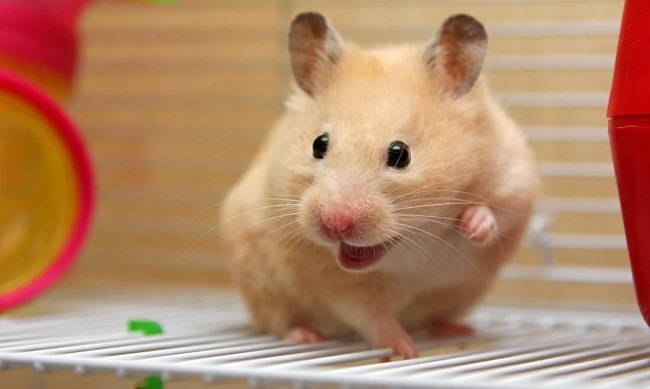Hamsters, with their compact size, relatively easy care requirements, and undeniable cuteness, have become popular pets worldwide. For anyone considering adding a hamster to their household, one of the first questions that come to mind is, “How much do hamsters cost?”
In this guide, we break down the initial purchase cost and ongoing expenses, providing a comprehensive view of the financial commitment involved in owning a hamster.

The Purchase Price: How Much Are Hamsters?
The initial cost of a hamster depends on factors such as breed, age, and where you choose to purchase or adopt. Pet store prices range from $10 to $20 for common breeds like Syrian and Dwarf hamsters.
Rare or specialized breeds, such as Roborovski hamsters, can cost upwards of $25. Adoption is another option, often with a cost of $10-$20. This fee generally includes medical check-ups, and the hamster is often already spayed or neutered, if necessary.
Housing and Setup
After purchase or adoption, your hamster will need a comfortable and spacious habitat. Hamster cages typically cost between $30 and $100, depending on size and complexity. An adequately sized cage is essential for your pet’s well-being.
Beyond the cage, you’ll need bedding, a water bottle, food dish, wheel, and toys. All these can cost around $40-$70 in total.
Food and Treats
Hamsters require a well-balanced diet to stay healthy. A month’s supply of hamster food generally costs about $5-$10, while occasional treats and fresh produce may add an extra $5-$10 monthly.
Healthcare
While hamsters are relatively healthy animals, they still require regular veterinary care and may have unforeseen health issues. Routine vet visits can range from $30-$60 per visit.
Bear in mind that these costs can increase significantly if your hamster needs medication or special treatments.
Additional Costs
Besides the initial and ongoing costs, additional expenses may occur. Travel carriers ($10-$20), replacement toys or equipment ($10-$20), and potential grooming supplies ($10-$20) are all costs to consider.
Total Cost
Considering all factors, the first-year cost of owning a hamster can range from $200 to $350, with annual costs thereafter around $100 to $150. However, remember that these figures are averages, and costs can vary based on individual circumstances.
Long-Term Commitment: Life Expectancy of a Hamster
It’s crucial to remember that adopting a pet is a long-term commitment. Hamsters, despite their small size, can live for 2-3 years, and some breeds may live even longer. You should be ready and able to provide care for your hamster for the entirety of its life.
Making the Right Choice: Different Hamster Breeds and Their Costs
There are several breeds of hamsters, and each has unique traits and care requirements. The most common pet hamster breeds include Syrian hamsters, Dwarf hamsters (like Roborovski and Russian), and Chinese hamsters.
Each breed may have a slightly different cost, both for purchase and care, so it’s essential to research which breed is the best fit for your lifestyle and budget.
Buying vs. Adopting: The Costs and Benefits
Adopting a hamster from a rescue organization can be a cost-effective alternative to buying from a pet store or breeder.
The adoption fee often covers initial vet care, and you’ll be giving a home to a hamster in need. However, buying from a reputable breeder or store ensures you know the hamster’s background and health history.
Hidden Costs: Emergency Vet Care and Health Issues
While routine vet care for hamsters is usually affordable, emergency vet visits can be costly. It’s essential to budget for potential health issues or emergencies.
Setting aside a small amount of money each month can help cover unexpected vet bills and keep your hamster healthy.
DIY Savings: Homemade Toys and Treats
One way to save money on hamster care is to make homemade toys and treats. Many hamsters love simple toys made from cardboard or untreated wood, and you can make nutritious treats from fresh fruits and vegetables. Just remember to research what foods are safe for your hamster.
Conclusion
Owning a hamster is a rewarding experience, but it’s essential to understand the associated costs fully. The initial purchase price is only a small part of the overall cost, with housing, food, and healthcare adding to the expenses.
By being aware of these costs, you can better prepare for hamster ownership and provide a loving and caring home for your new furry friend. Despite the costs involved, the companionship and joy a hamster brings make it a priceless addition to your home.
























